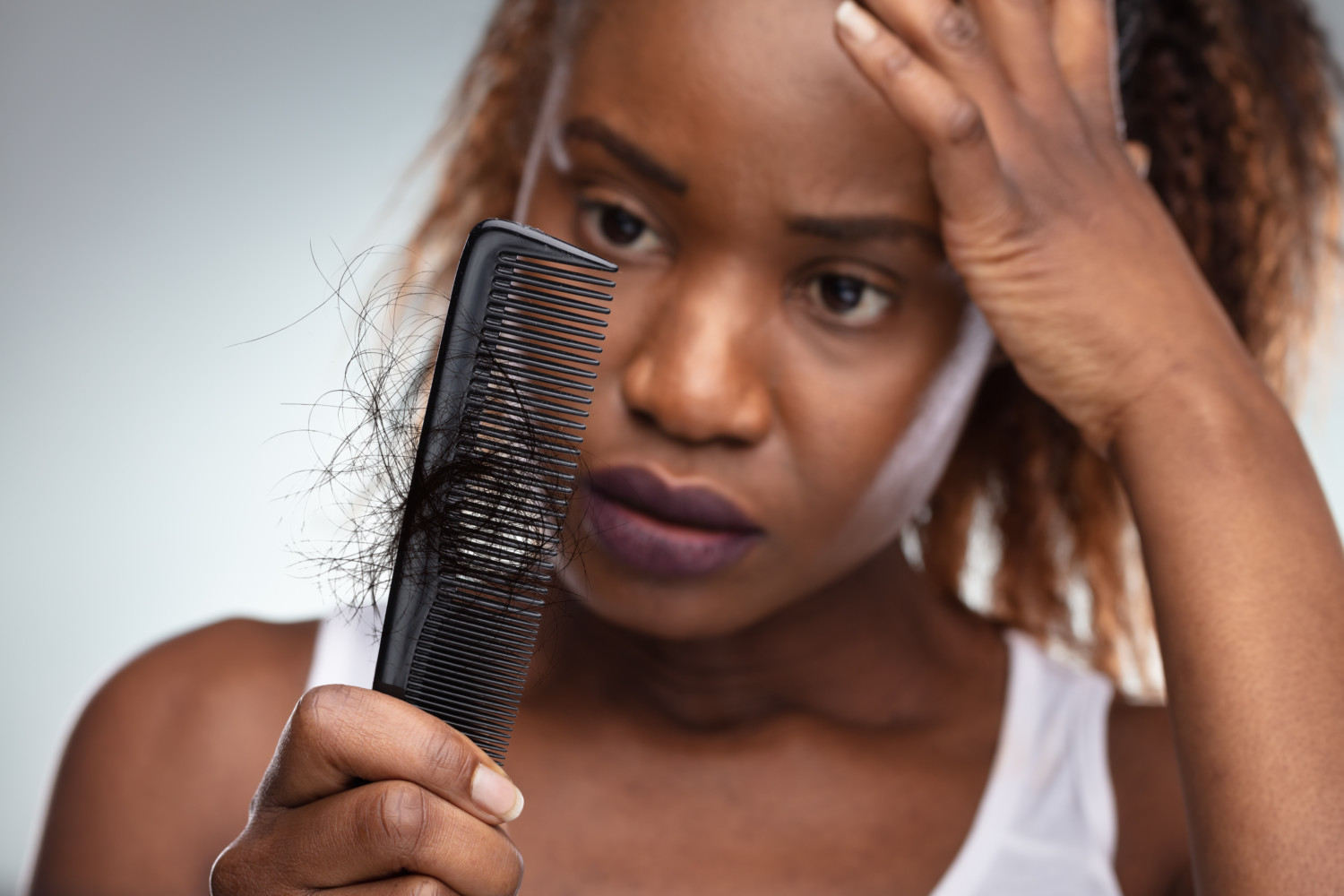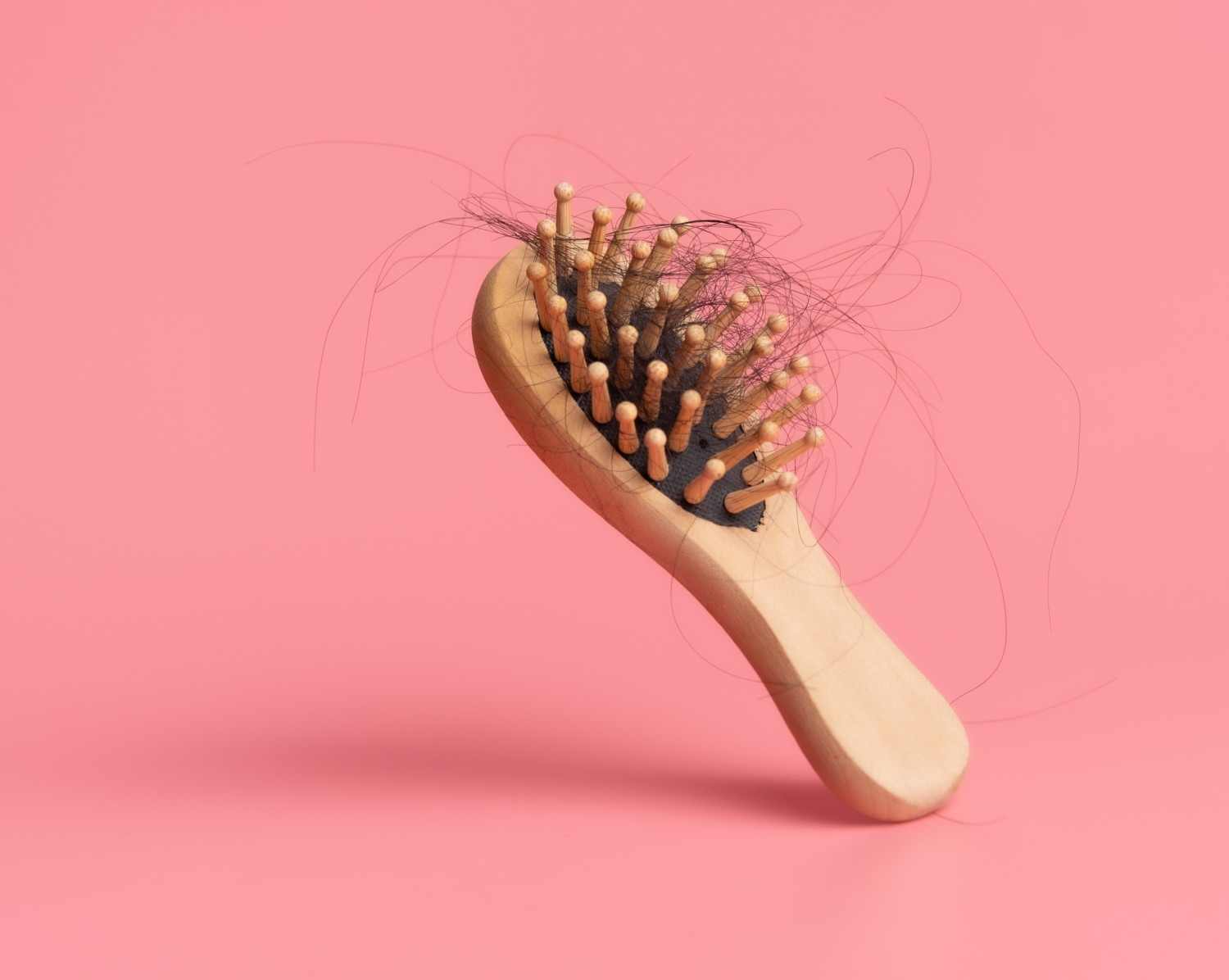The products and services mentioned below were selected independent of sales and advertising. However, Simplemost may receive a small commission from the purchase of any products or services through an affiliate link to the retailer's website.
As we continue to learn more about COVID-19, health experts confirm that the respiratory infection can cause a host of unusual symptoms, which sometimes include loss of taste and smell, itchy lesions on the hands or feet and swollen eyelids. But can the coronavirus also cause hair loss? It’s possible, according to doctors.
While most people recover and return to normal health, some who have survived COVID-19 can face a bewildering condition called long-term COVID where they test negative for the virus but suffer strange symptoms weeks to months after their initial recoveries, explains Dr. William W. Li, a physician, scientist and author of “Eat to Beat Disease: The New Science of How Your Body Can Heal Itself.” The Centers for Disease Control and Prevention doesn’t include hair loss on its list of COVID-19 symptoms, but a survey of COVID-19 survivors revealed 30% experienced hair loss.
Actress Alyssa Milano posted a video on Twitter in August that shows clumps of her hair falling out as she brushed her hair. “This is my hair loss from COVID-19,” she says.
Thought I’d show you what #Covid19 does to your hair. Please take this seriously. #WearADamnMask #LongHauler pic.twitter.com/H0wCmzYswV
— Alyssa Milano (@Alyssa_Milano) August 9, 2020
So what makes COVID-19 a culprit for hair loss?
“While stress may be one explanation for this, another possible explanation is that the coronavirus damages blood vessels, which are the lifelines of hair follicles,” Li says.
Here’s what else you need to know about COVID-19 and hair loss:
How Stress Can Cause Hair Loss
The coronavirus pandemic has altered just about every aspect of life, and, not surprisingly, Americans are reporting higher levels of stress, according to the American Psychological Association. The association takes an annual poll on Stress in America, and this year’s survey was conducted early in the pandemic, from April 24 to May 4.
The report found that the pandemic was causing a variety of stressors. At the time, more than seven in 10 parents said managing distance and remote learning for their children is a significant source of stress, and 70% of respondents reported that stress related to work and the economy had increased. The government’s response to the pandemic has caused stress in 67% of people. Pandemic-related stress has also had a disproportionate impact on communities of color.
In general, stress is known to cause hair loss, and it does so in a few ways.
For starters, stress hair shedding known as telogen effluvium can be triggered by fever, illness, surgery medication changes and many other physical or psychological stressors, says Dr. Susan Bard, a New York City-based board-certified dermatologist. The shedding typically starts three to six months after a triggering incident, she says.

“I am seeing a significant rise in patients with stress shedding secondary to COVID regardless or whether they’ve actually had COVID or just dealt with lockdown related stress,” she says. “This is usually treated with hair supplements, platelet-rich plasma therapy and red light therapy.”
Another explanation? A stress hormone released by the brain known as ACTH stimulates the body’s adrenal glands to release cortisol as part of the fight or flight response that has been hardwired into humans since prehistoric times, Li explains.
“Studies have shown both ACTH and cortisol can trigger hair follicles to go into a self-destruct mode called apoptosis,” he says.
Stress can also trigger an autoimmune reaction against hair follicles, Li says. This condition is called alopecia areata and can result in patches of hair loss.
Additionally, stress can cause an emotional reaction similar to an obsessive-compulsive disorder called trichotillomania, Li says, where people irresistibly pull their hair out.

How To Prevent Stress-Related Hair Loss
You may have noticed hair loss if more hair than usual is coming out as you brush your hair. Some other telltale signs to look for are unusual amounts of hair in the shower drain, areas of thinning hair with visible scalp or bald patches, Li says.
Lowering your stress level is the best way to protect against stress-related hair loss, Li says.
“Techniques like meditation, exercise, and counseling can be helpful for stress management,” he says. “Anti-anxiety medications can also sometimes be helpful.”
Have you noticed any unusual hair loss amid the pandemic?
This story originally appeared on Simplemost. Checkout Simplemost for additional stories.


